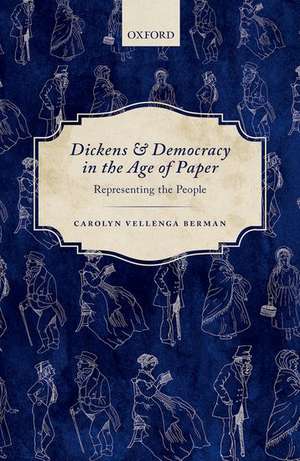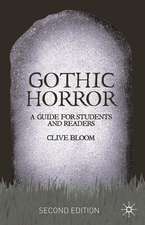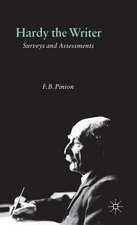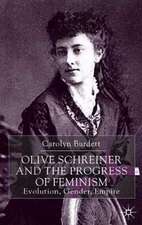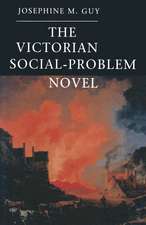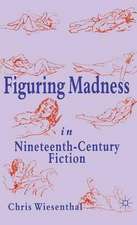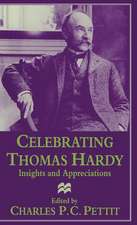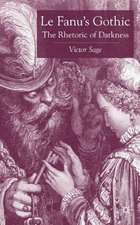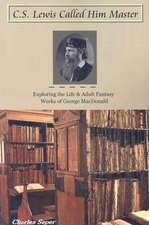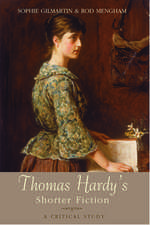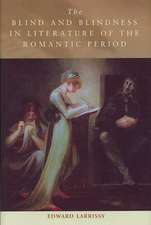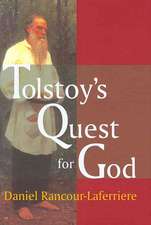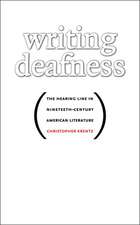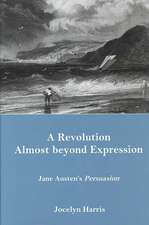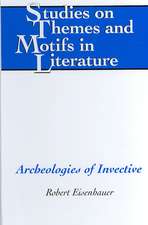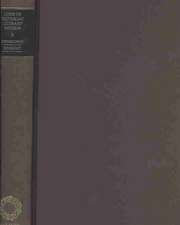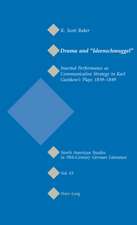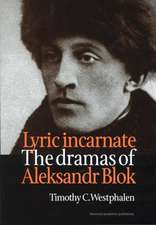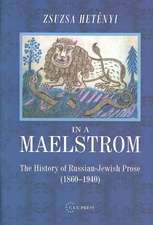Dickens and Democracy in the Age of Paper: Representing the People
Autor Carolyn Vellenga Bermanen Limba Engleză Hardback – 17 feb 2022
Preț: 674.13 lei
Preț vechi: 966.14 lei
-30% Nou
Puncte Express: 1011
Preț estimativ în valută:
128.99€ • 140.56$ • 108.70£
128.99€ • 140.56$ • 108.70£
Carte disponibilă
Livrare economică 24-29 martie
Preluare comenzi: 021 569.72.76
Specificații
ISBN-13: 9780192845405
ISBN-10: 0192845403
Pagini: 368
Ilustrații: 20 Illustrations
Dimensiuni: 160 x 240 x 25 mm
Greutate: 0.68 kg
Editura: OUP OXFORD
Colecția OUP Oxford
Locul publicării:Oxford, United Kingdom
ISBN-10: 0192845403
Pagini: 368
Ilustrații: 20 Illustrations
Dimensiuni: 160 x 240 x 25 mm
Greutate: 0.68 kg
Editura: OUP OXFORD
Colecția OUP Oxford
Locul publicării:Oxford, United Kingdom
Recenzii
This fascinating study blends history and biography, analyzing Charles Dickens's work and his wish to improve society.
An American academic, Dr Carolyn Vellenga Berman, has had the fascinating idea of looking at Charles Dickens' novels alongside the publications of a Parliament expanding its horizons ... is a classic of evocative and satirical reporting.
As Carolyn Vellenga Berman notes in the Coda to Dickens and Democracy in the Age of Paper, her focus is upon the ways in which 'Dickens's fiction illustrates how the national contours of an imagined community developed alongside both print-capitalism and attempts to define the People implicit in a representative form of government' (321). Emphasising Dickens's nature as 'an embedded writer' (133), profoundly immersed in and engaged with the institutions about which he wrote, Berman explores how his early experiences as a Parliamentary reporter laid a foundation for his fiction and the multiple ways in which it evolved an ongoing and 'complex interrogation' (3) of a rivalry to represent the People that developed between the claims of the legislature and the rapidly rising genre of the novel.
Important new book on Dickens. Berman's book tells a spellbinding but cautionary tale.
By examining the complex interactions of literary and political sources across Dickens's oeuvre and tracing the implications of these interactions for our understanding of the nineteenth-century representative system,... Berman shows that the stakes were, and continue to be, very high indeed.
Dickens and Democracy in the Age of Paper is nevertheless an extensive, fascinating, and important study - a complex ecosystem of recovered contexts - and essential reading for scholars of Dickens's life and writing and of the intellectual history of culture, reform politics, and Parliament in Britain during the long-nineteenth century.
Charles Dickens's early career as a shorthand reporter of Parliamentary debates has long been familiar to scholars, but no one has paid it such close attention or worked through its implications in such detail as Carolyn Vellenga Berman does in Dickens and Democracy in the Age of Paper.
Dickens and Democracy contributes greatly to understandings of Dickens,the politics of the Victorian novel, and the role of print culture in modern democracy. "[R]epresenting the People," Berman observes, "remains a vital and pressing challenge"
Underlines just how much we can still learn today from Dickens and Parliament in the nineteenth century.
Dickens and Democracy in the Age of Paper will be of particular interest not only to scholars of Dickens and historians of parliamentary literature, but those working on Victorian materiality and print culture. The coda, which explores affinities between Victorian parliamentary debates and tweeting, the claims of populist politicians then and now, and the dangers of new surveillance technologies, brings Berman's study up to the present moment. It thereby valuably underlines just how much we can still learn today from Dickens and Parliament in the nineteenth century.
Berman takes on subject matter nearly as capacious as the panoramic novels she examines … Of Dickens and Democracy's many contributions, perhaps the most significant lies in the light it throws on new modes of governance signaled by Parliament's turn to mass print while demonstrating how Dickens's engagement with this kind of writing-and the world it heralded-profoundly shaped his corpus.
An American academic, Dr Carolyn Vellenga Berman, has had the fascinating idea of looking at Charles Dickens' novels alongside the publications of a Parliament expanding its horizons ... is a classic of evocative and satirical reporting.
As Carolyn Vellenga Berman notes in the Coda to Dickens and Democracy in the Age of Paper, her focus is upon the ways in which 'Dickens's fiction illustrates how the national contours of an imagined community developed alongside both print-capitalism and attempts to define the People implicit in a representative form of government' (321). Emphasising Dickens's nature as 'an embedded writer' (133), profoundly immersed in and engaged with the institutions about which he wrote, Berman explores how his early experiences as a Parliamentary reporter laid a foundation for his fiction and the multiple ways in which it evolved an ongoing and 'complex interrogation' (3) of a rivalry to represent the People that developed between the claims of the legislature and the rapidly rising genre of the novel.
Important new book on Dickens. Berman's book tells a spellbinding but cautionary tale.
By examining the complex interactions of literary and political sources across Dickens's oeuvre and tracing the implications of these interactions for our understanding of the nineteenth-century representative system,... Berman shows that the stakes were, and continue to be, very high indeed.
Dickens and Democracy in the Age of Paper is nevertheless an extensive, fascinating, and important study - a complex ecosystem of recovered contexts - and essential reading for scholars of Dickens's life and writing and of the intellectual history of culture, reform politics, and Parliament in Britain during the long-nineteenth century.
Charles Dickens's early career as a shorthand reporter of Parliamentary debates has long been familiar to scholars, but no one has paid it such close attention or worked through its implications in such detail as Carolyn Vellenga Berman does in Dickens and Democracy in the Age of Paper.
Dickens and Democracy contributes greatly to understandings of Dickens,the politics of the Victorian novel, and the role of print culture in modern democracy. "[R]epresenting the People," Berman observes, "remains a vital and pressing challenge"
Underlines just how much we can still learn today from Dickens and Parliament in the nineteenth century.
Dickens and Democracy in the Age of Paper will be of particular interest not only to scholars of Dickens and historians of parliamentary literature, but those working on Victorian materiality and print culture. The coda, which explores affinities between Victorian parliamentary debates and tweeting, the claims of populist politicians then and now, and the dangers of new surveillance technologies, brings Berman's study up to the present moment. It thereby valuably underlines just how much we can still learn today from Dickens and Parliament in the nineteenth century.
Berman takes on subject matter nearly as capacious as the panoramic novels she examines … Of Dickens and Democracy's many contributions, perhaps the most significant lies in the light it throws on new modes of governance signaled by Parliament's turn to mass print while demonstrating how Dickens's engagement with this kind of writing-and the world it heralded-profoundly shaped his corpus.
Notă biografică
Carolyn Vellenga Berman (Ph.D., Brown University) is an Associate Professor of literature and Co-Chair of Literary Studies at Eugene Lang College, The New School, in New York City. She is the author of Creole Crossings: Domestic Fiction and the Reform of Colonial Slavery (Cornell University Press). Her articles have appeared in Victorian Studies, Victorian Literature and Culture, Novel, Genre, and Nineteenth-Century Contexts and collections ranging from Just Below South (University of Virginia) to The Encyclopedia of Victorian Literature (Blackwell). She serves on the advisory board of the North American Victorian Studies Association and the editorial board of Dickens Studies Annual.
